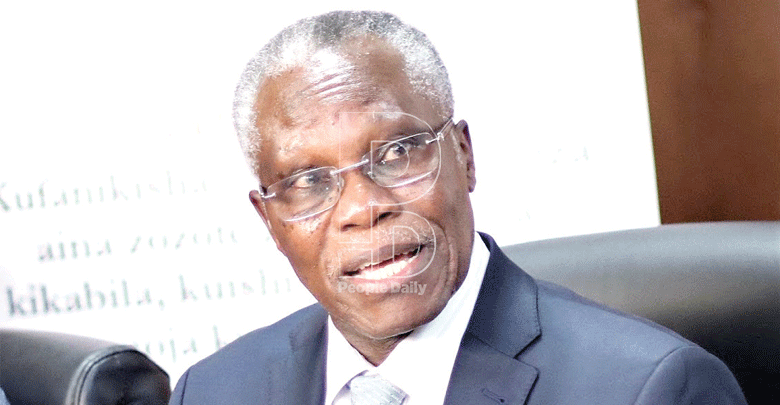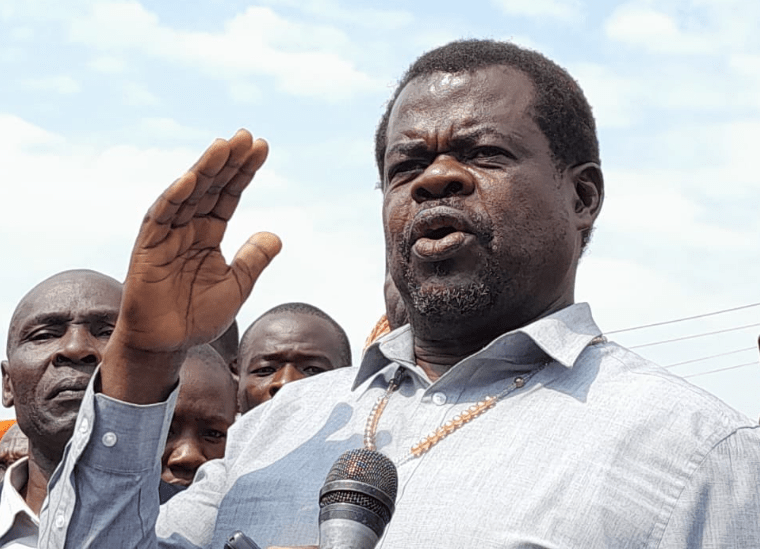National Cohesion and Integration Commission to block tainted leaders in 2022 election

Hillary Mageka @hillarymageka
The National Cohesion and Integration Commission (NCIC) will bar any candidate accused of “untoward utterances and dishonourable behavior” in public from seeking elective seats ahead of the 2022 General Election.
This, according to the commission, will be done by working with political parties and other clearing agencies to ensure a leader, who appears in the Wall of Shame three times is barred from contesting any seat.
“We have created a Wall of Fame and a Wall of Shame, where leaders propagating best political practices are cited for their positive deeds and those with dubious practices are listed and shamed,” NCIC Chairman Samuel Kobia said.
Key milestone
The commission will work with other agencies among them the Ethics and Anti-Corruption Commission, Independent Electoral and Boundaries Commission, and Offices of the Director of Public Prosecutions, Directorate of Criminal Investigations and Registrar of Political Parties to warrant coherence as the country prepares for 2022 election.
With the next poll fast approaching and political temperatures steadily rising, he said the agency will be publishing names of persons, including politicians whose words or conduct undermine peace.
Kobia made the pronouncement on the eve of unveiling the five- year Strategic Plan, which the commission terms as a key milestone in the promotion of peace, cohesion and integration.
In February, NCIC listed former Nairobi Governor Mike Sonko, MPs Simba Arati (Dagoretti North), Johanna Ngeno (Emurua Dikir) and Silvanus Osoro (South Mugirango) in its inaugural list of Wall of Shame.
With the political landscape awash with unpleasant political altercations that may pose a threat to a peaceful election, NCIC boss said the commission has developed a handbook in investigation and prosecution of hate speech, which has been used to enhance the capacity of investigators and prosecutors across the country.
He cautioned politicians to avoid being the cause of chaos, hate speech and ethnic contempt or risk facing dire consequences.
“It is important to note that the commission’s mandate is to investigate cases of hate speech while the ODPP handles prosecution,” the chairman said.
In the past, NCIC has been accused of being toothless in taking action to politicians from their harsh rhetoric, but defended itself, saying they had secured four convictions in cases of hate speech and ethnic contempt.
“Nonetheless, there are challenges the commission faces due to interference of witnesses by the suspects, and in some cases hostility of the witnesses, technicalities of digital evidence and its admissibility in courts,” he said.
According to him, there has been a considerable measure of success registered by NCIC through strengthened peace building, national values and cultural systems, cohesion and integration in learning and other public institutions.
Other accomplishments include rolling out Amani (Peace) Club curriculum in 200 schools across the country, reaching over 500,000 students/pupils and 1000 teachers.
The Commission further enshrined the national values and cohesion into the new education curriculum, and has annually supported the national music and drama festivals to mainstream the cohesion and integration principles.
In influencing the cohesion and integration agenda in public institutions, the Commission has not only raised awareness on the bar of accountability but has also facilitated the inclusion of minority communities such as the Makonde in Kwale County employment.
Public perception
Kobia, however, listed numerous challenges he says the commission has encountered in executing its mandate, which include budgetary constraints, inadequate staffing, limited understanding of the NCIC mandate-where public perception is still stuck and limited to hate speech monitoring, and thereby ignoring the commission’s other responsibilities.
Resource limitations also hinders the implementation of NCIC core mandate, with a multiplicity of drivers of conflict and violence, exacerbated by political activities, ethnic polarisation, violent extremism and the reemergence of organised gangs, which are not readily accommodated by the available financial resources,” he said.
“Another major challenge is that though borne by an Act of Parliament, NCIC is not anchored in the Constitution despite being an independent commission,” Kobia added.










